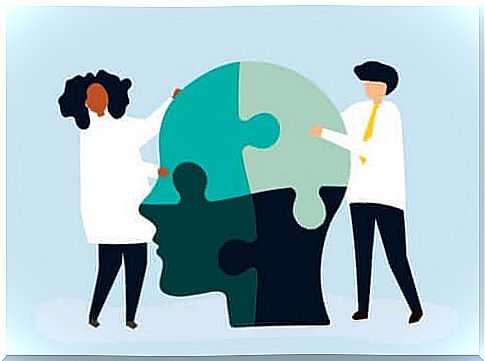Psychosocial Intervention In Mental Health

According to the World Health Organization (WHO), health is the state of complete physical, mental and social well-being, and not just the absence of ailments and diseases. Well, to achieve or maintain this state, you can use different strategies in different fields. One of these places of knowledge and application is actually psychosocial intervention.
Before we talk more about this, it is important that we all understand what psychosocial intervention is. According to Arvis (2009), psychosocial intervention is a process aimed at increasing the developmental capacity of people, their families and societies.
It allows subjects to exercise control and power over their individual and social surroundings. In this way, it increases people’s well-being and quality of life, and trains and gives them individual tools that allow them to cope and solve problems in addition to making changes in their social environment.
What is mental health?
As Oramas, Santana and Vergara (2013) said, mental health involves learning about reality and then transforming it through confrontation, management and integration of conflict resolution; both internally in the individual and for those around them. When there is a disruption in the learning process, or if the individual fails in the attempt at the solution, one can start talking about illness.
Other authors such as Riviere say something of the same, that mental health is the ability to maintain dialectical and transformative relationships with the world that allow the resolution of internal contradictions in addition to those related to social context. (Cited by Oramas, Santana and Vergara. 2013).
According to the World Health Organization, mental health is defined as “a state of well-being in which each individual realizes his or her potential, can cope with normal stress in life, can work productively and fruitfully, and is able to contribute to his or her community.”

Although human ability to cope with everyday conflicts and transform reality into greater importance, there are other determining factors when it comes to mental health:
- The social context. Situations of poverty, abuse or belonging to a minority group.
- Family background.
- Comorbidity with other chronic disorders.
Psychosocial intervention is performed through two interrelated contexts: Psychological and social. The individual must begin by taking into account their entire social environment and those with whom they interact. When intervening, it is important to remember how important the role of a professional in the primary health care service is. This is the closest and most accessible service. From there, experienced professionals will evaluate and transfer the patient.
One thing to keep in mind is that the coordinated efforts of the various professionals are fundamental to achieving the goals. Although medical treatment may be important (of course, always prescribed by a professional), it is important that we do not forget the relevance of psychosocial interventions.
As indicated in Good Practices in Intervention for People with Mental Illness (2016), this intervention must include social support, monitoring, follow-up and social rehabilitation. The main goal of this practice is to contribute to the autonomy of an individual suffering from a mental illness.
Patients must receive individual and personal attention. Here are some things to keep in mind:
- The needs of the individual.
- Support from their family or immediate circle.

Psychosocial intervention for people with mental disorders includes:
- Activities related to their living situation: Surveillance, assistance in the search for housing, etc.
- Daily activities.
- Support for instrumental daily activities.
- Monitoring and training for medical administration.
- Guidance for working with organizations and time management.
- Training for social and family life.
- Socio-legal advice.
In short, people are now more aware of the importance of mental health than just a few years ago. But there is still much more to learn and understand about mental illness. Little by little, we as a society should become more empathetic, tolerant and informed on this subject.
For these, and other, reasons, it is important to encourage those who need to seek out a mental health professional, and help them understand how helpful psychosocial intervention can be for them.









